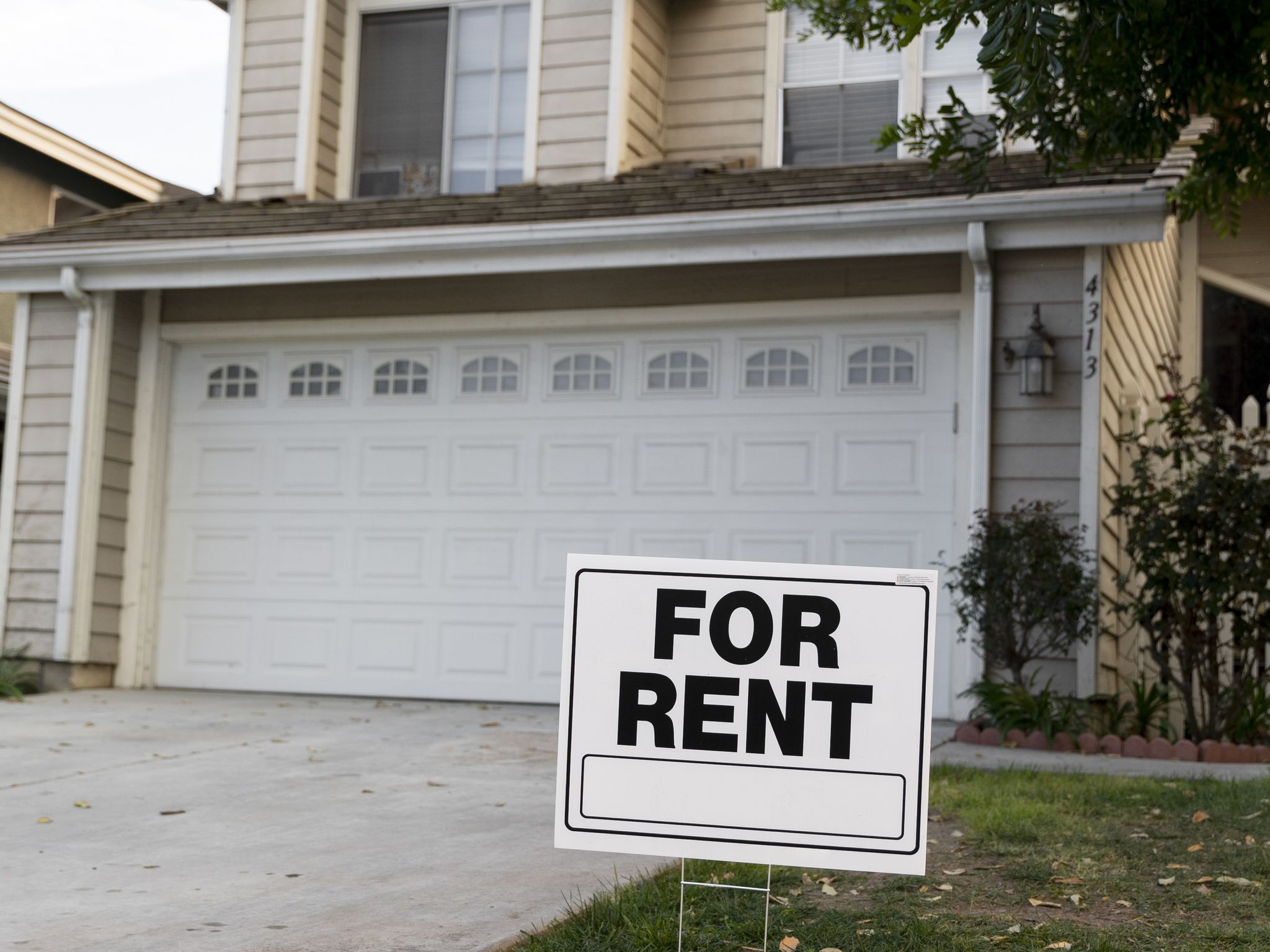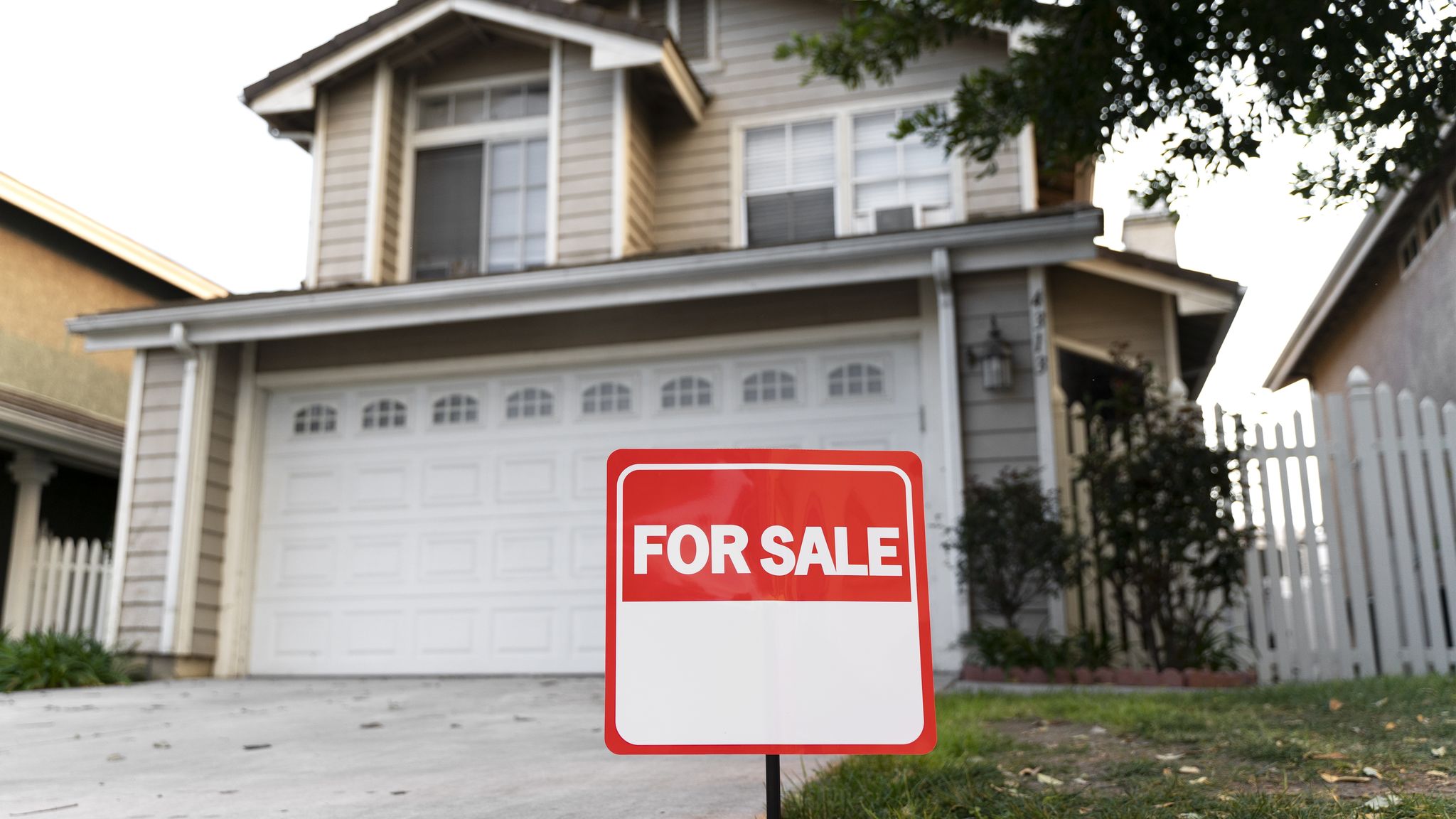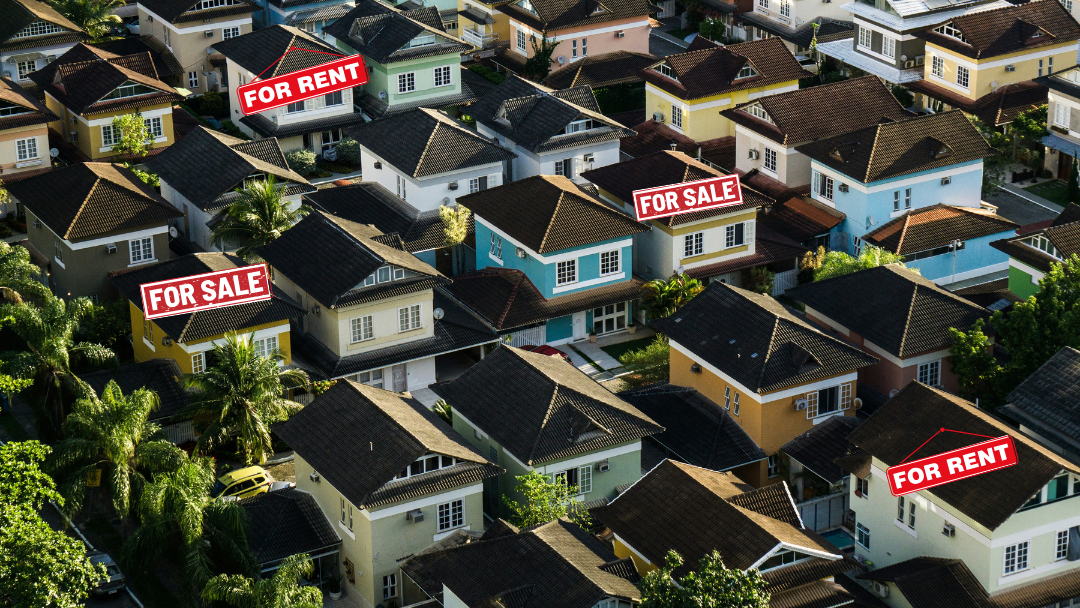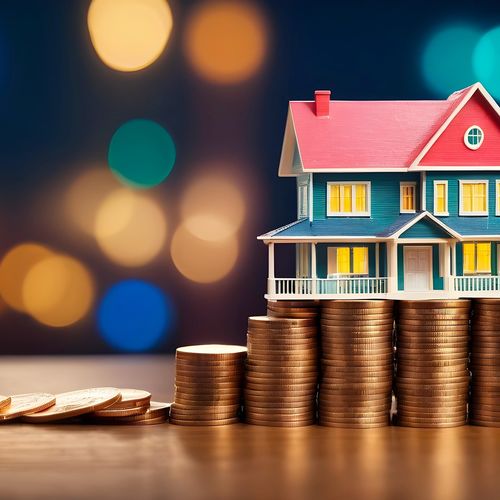While you may expect a blog written by a brokerage to highly recommend buying a home, we don’t necessarily believe that buying your home is the right advice for everyone. For some people, renting just makes more sense. If you’re unsure about whether you should rent or buy your home, it is important to weigh the pros and cons of renting vs buying. Luckily, you’re in the right place!

RENTING PROS
The first pro to renting is the ability to experience life in a city or neighborhood before committing. Renting is great for people who want to move to a new area, don’t know the neighborhood, or are moving in from another state. With renting, you only have to commit to an area for as long as your lease lasts and if you don’t like it, you can easily move once your lease is up. The flexibility to move is also another pro. When you buy a home, it’s recommended that you hold onto it for at least three to six years, depending on the appreciation in your area just to get your upfront costs back. With renting, the only upfront cost you have to worry about getting back is your security deposit. That’s also another pro - less upfront costs. Buying a home is expensive. Renting a home, while can be expensive in the long run, doesn’t require a large down payment in most cases. If you don’t have the ability to put down a large payment for a home, renting is the best choice for you. And finally, the last pro is maintenance. Maintenance issues can be costly and overwhelming and with renting, those issues are your landlord’s problems. If you were to buy your home, you would have to deal with finding a specialist to fix your issue and the bill, which can be hundreds to thousands of dollars depending on the fix.
To summarize the pros of renting your home:
- Renting is best for people who don’t know the area and want to experience life there before committing to buying a home
- Renting offers the flexibility to move when your lease is up without losing so much money on upfront costs
- Renting has fewer upfront costs
- Maintenance issues are your landlord’s problem when renting
RENTING CONS
With every pro, there is a con. One of the biggest cons of renting can be unstable rent. Texas does not have rent control, so your rent can go up every year. Sometimes it’s not by much, but it really just depends on your landlord, the area you’re in, and the real estate prices around you. The second con is that you’re not really building any wealth. Buying a home is a huge investment that usually makes up the majority of most people’s net worth. If you rent, you don’t have that huge asset to help build your wealth and really, you're just building your landlord’s wealth instead. Unless you have investments in other places, it’s just one more place to invest in yourself that you’re not really investing in yourself. The third con of renting is that you have less control over, more restrictions, and more rules over what you can and cannot do with your home. You typically can’t do major renovations and sometimes can’t decorate your home the way you would want to decorate your private space. Your landlord can also decide how often guests are allowed to come over and stay. Of course, when you buy your home, you’re free to do with it as you like (so long as your potential HOA is fine with it). The final con to renting, which is also a pretty big con, is that your landlord can decide to sell or not renew your lease at any time. Staying at the home you’re renting long-term is not guaranteed, so if you’re looking for something more permanent, buying your home would be the better option.
To summarize the cons of renting your home:
- Your rent can go up every year
- You do not build wealth through renting
- You have less control over your home in regard to how you can decorate/renovate and also how often you can have guests over
- Your landlord can sell or not renew your lease, forcing you to move at their discretion

BUYING PROS
Now let’s get into the pros of buying a home. The biggest pro to buying your home is that you’re building equity over time. It is a huge investment for you and in you. When you look at it, most Americans’ nest eggs when they get to be in their 80s are in the property they own. And if you’re unfamiliar with the term “nest egg,” it is a sum of money saved for the future. So, if you rent continuously, you’re losing out on building that nest egg. The second pro is that you have a fixed monthly payment if you have a mortgage. When you’re renting, your landlord is going to take the taxes and whatever the rental rates of the area and apply it to you, so your rent payments may not be consistent lease to lease. In Texas we have variable taxes, so your taxes do go up a bit. For the most part though, it will stay as consistent as it can be. The final pro is that you get to make your home exactly how you want it. Your guests can also stay there as long as you want. There’s just a lot more freedom when it comes to owning your home. To summarize the pros of buying your home:- Buying your home is an investment that builds equity over time
- Buying your home allows fixed monthly payments that generally stay the same year to year
- You can renovate your home and decorate your home however you like and have guests over for as long as you want
BUYING CONS
As stated previously, buying a home comes with higher upfront costs. In most cases, you will have to make a large down payment in order to buy your home. In Texas, there are programs that you may qualify for that help lower costs, such as an FHA loan which requires a 3.5% minimum down payment to buy your home. Other states probably have similar programs, so it’s good to look into them if you’re thinking about buying. The second con is a reverse of the rental maintenance pro. As a homeowner, you are responsible for all repairs in your home. There’s always something to repair, from water heaters to roofs, and it can get pretty expensive. If you plan to buy a home, it is recommended to put aside at least $3,000 - $6,000 in savings to help you pay for maintenance issues as they come up (and they definitely will). And unlike renting, buying your home comes with less flexibility - the third con. It’s not a worthwhile investment to buy a home and then shortly move away. It takes at least 3-5 years just to break even on your investment. Buying a home is a long-con and if you’re not prepared to stay in one place for a long time, maybe you should look at renting. To summarize the cons of buying a home:- There are larger upfront costs when buying a home
- You are financially responsible for maintenance issues
- You have less flexibility to move whenever you want to
Are you more of a visual learner? Watch our video over the same topic!





